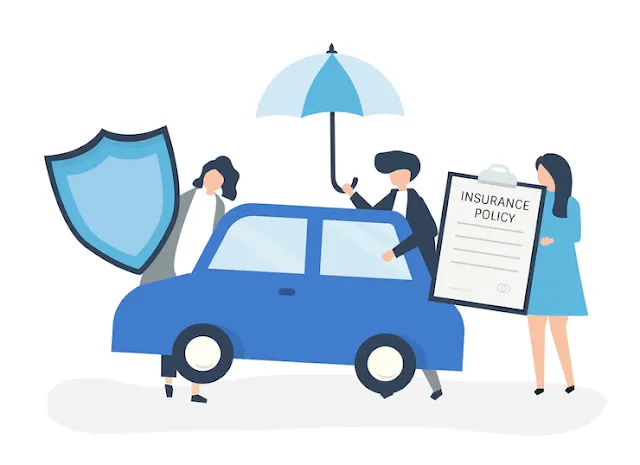Things to Consider Before Buying Car Insurance
 |
| Things to Consider Before Buying Car Insurance |
Introduction
When it comes to buying car insurance, it's crucial to make an informed decision to protect yourself and your vehicle. With numerous insurance providers and policy options available in the market, it can be overwhelming to choose the right one. This article will guide you through the essential factors to consider before purchasing car insurance, ensuring you select a policy that suits your needs and provides adequate coverage.1. Assess Your Insurance Requirements
Before diving into the process of buying car insurance, it's important to evaluate your insurance requirements. Consider factors such as the value of your car, your driving habits, and your budget. Assess whether you need comprehensive coverage or if a basic liability policy would suffice. Understanding your specific needs will help you make an informed decision.2. Research Different Insurance Providers
To find the best car insurance policy, it's essential to research and compare different insurance providers. Look for companies with a good reputation, positive customer reviews, and a strong financial standing. Evaluate their coverage options, claim settlement process, and customer support. By comparing multiple providers, you can make an informed choice and secure the best deal.3. Understand Policy Coverage and Exclusions
When selecting car insurance, thoroughly read and understand the policy coverage and exclusions. Different policies offer varying levels of coverage for accidents, theft, natural disasters, and other incidents. Pay attention to the fine print and ensure that the policy covers your specific requirements. Be aware of any exclusions that may limit your coverage in certain situations.4. Consider Deductibles and Premiums
Deductibles and premiums are crucial aspects of car insurance. Deductibles are the amount you agree to pay out of pocket before the insurance coverage kicks in, while premiums are the recurring payments you make for the policy. Strike a balance between the deductible and premium amounts based on your financial situation. A higher deductible usually results in lower premiums, but be sure you can afford the deductible in case of an accident.5. Check for Additional Benefits
Some insurance policies offer additional benefits that can enhance your coverage. These benefits may include roadside assistance, rental car reimbursement, or coverage for personal belongings inside the car. Assess whether these additional benefits align with your needs and consider their value when choosing a car insurance policy.6. Understand the Claim Process
Before finalizing a car insurance policy, familiarize yourself with the claim settlement process. Find out how to file a claim and the documents required. Consider the efficiency and responsiveness of the insurance provider in handling claims. A smooth and hassle-free claim process can make a significant difference during stressful situations.7. Evaluate Discounts and Offers
Insurance providers often offer discounts and special offers to attract customers. Research the available discounts and determine if you qualify for any. Common discounts include safe driver discounts, multi-car discounts, and discounts for installing safety features in your vehicle. Take advantage of these opportunities to reduce your insurance premiums.8. Seek Recommendations and Reviews
Word-of-mouth recommendations and customer reviews can provide valuable insights into the quality of car insurance providers. Ask friends, family, and colleagues about their experiences with different insurance companies. Additionally, read online reviews and testimonials to gauge customer satisfaction levels. This information can help you make an informed decision and choose a reliable insurance provider.9. Consider Financial Stability
Car insurance is a long-term commitment, and you want to ensure that the insurance provider will be financially stable in the years to come. Check the financial ratings of the insurance companies you are considering. Independent rating agencies provide assessments of an insurer's financial strength, indicating its ability to pay claims.10. Review the Policy Periodically
Once you purchase car insurance, it's important to review your policy periodically. Life circumstances, such as changes in your car's value or your driving habits, may require adjustments to your coverage. Regularly evaluate your policy to ensure it still meets your needs and provides adequate protection.Conclusion
Buying car insurance requires careful consideration to safeguard yourself and your vehicle. Assess your requirements, research different insurance providers, and thoroughly understand policy coverage and exclusions. Consider deductibles, premiums, and additional benefits, and ensure you understand the claim process. Seek recommendations, evaluate discounts, and check the financial stability of the insurance provider. By following these steps, you can make an informed decision and select the right car insurance policy.Frequently Asked Questions (FAQs)
What factors affect car insurance premiums?Factors such as your age, driving history, location, type of vehicle, and coverage level can influence car insurance premiums.
Is it necessary to have comprehensive coverage?
Is it necessary to have comprehensive coverage?
Comprehensive coverage is not mandatory, but it provides additional protection for your vehicle against theft, vandalism, and natural disasters.
Can I transfer my existing car insurance to a new vehicle?
Can I transfer my existing car insurance to a new vehicle?
In most cases, you can transfer your car insurance to a new vehicle by contacting your insurance provider and providing the necessary details.
Are there any penalties for canceling a car insurance policy?
Are there any penalties for canceling a car insurance policy?
Some insurance providers may charge a cancellation fee if you terminate your policy before its expiration date. Review the terms and conditions of your policy for more information.
How can I lower my car insurance premiums?
How can I lower my car insurance premiums?
You can lower your car insurance premiums by maintaining a clean driving record, opting for a higher deductible, and taking advantage of available discounts.
Please Wait!
Caution - In the recruitment process, legitimate companies never charge a fee from candidates. If there are companies that charge for interviews, tests, ticket reservations, etc., it is better to avoid them because there are indications of fraud. Do not transfer any payments when applying for a job.
Post a Comment
Post a Comment
